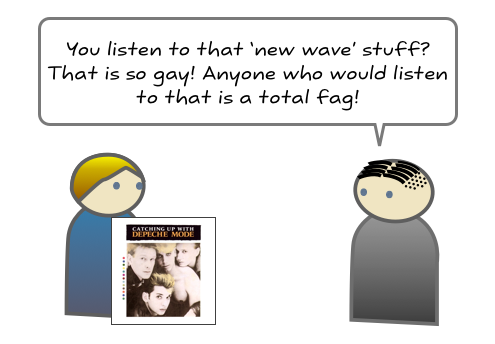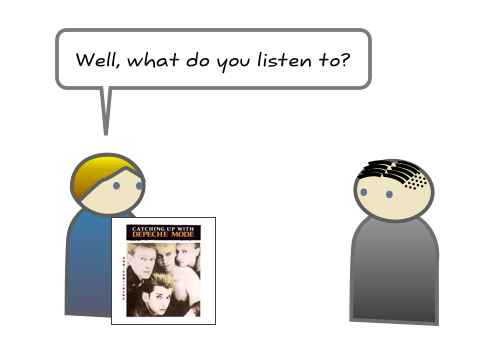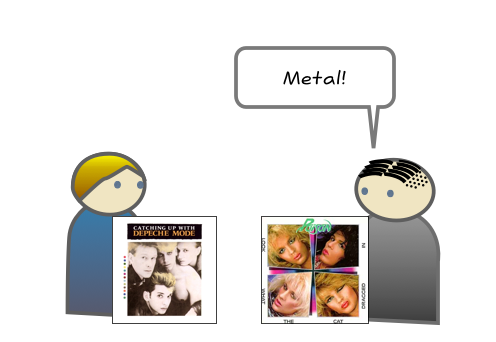If you’re hooked on Words with Friends, there’s a new game in town: Letterpress. It’s the best new word game I’ve seen in a long while, and it’s got me hooked.
It’s a word game with elements of strategy, sort of like Scrabble plus Go. No, wait, it’s Boggle plus Risk. Perhaps Upwords plus Ataxx? Actually, the best description would be Boggle plus Reversi. You have to build words from the letters on the board, but when you use a letter, you claim it as your territory and it turns your colour. You win if the most letters are your colour when all the letters have been used.
Your opponent can change your letters to their colour by using them on their turn, but if you manage to completely surround a letter with other letters of your colour, it’ll turn a darker shade of your colour.
Not looking good for red.
That means it’s protected — your opponent can use it, but not flip it. So you have a number of things to do in every turn: make the longest words possible, defend your protected letters, and mount attacks on those of your opponent. And since words can’t be replayed, you’ll be burning through your vocabulary fast.
Strategy
As in Reversi, the endgame is really important, and there’s a huge advantage for the last player. So part of your strategy will be to watch which letters are left, and make sure your opponent can’t use them all on one massive final word. (Typical scenario: Q, J, and W.) In the most intense games, my opponents and I have had to circle each other, setting up territories and picking off each other’s letters in an ever-diminishing list of available words, until one of us has a healthy bank of protected letters. Then you start knocking off the unused ones when you’re certain that your opponent can’t get enough letters to win, even if they do go out.
Another strategy could be termed the ‘Samsung strategy’: take whatever word your opponent makes, adapt it slightly, and then play it. They played SIFTING? Try (ahem) FISTING. They played THICKETS? Play THICKEST or THICKSET. Progress will be incremental and hard-won, but you’ll be draining your opponent of options if it comes to a game of attrition. And it does.
Improvements
You’re not allowed to use words that have already been played, or forms of that word. That prevents pointless tit-for-tat wars. The problem is that the game has a really strange idea about what constitutes a form (or, mistakenly, a ‘prefix’) of a word. If INCITEMENT is taken, it allows INCITEMENTS, even though it shouldn’t. However, when I played BLIT, it said that was a form of the already-played word BLITZ. It is so not.
Should it disallow only inflections like plural -S? What about -ING or UN-? It needs to be consistent.
There are other improvements that I hope will come in a future update. It needs a chat function. It needs a rematch button. It would also be nice if it could uncouple itself from Apple’s Game Center, which suffers from inexplicable errors and won’t let me start games with certain people.
Even with these problems, Letterpress is still a fantastic game that’s very worth trying out. There’s a free version; the paid version allows you more than two games and a change of colours.
So this is me calling y’all out on Letterpress. I will challenge all comers. I’m ‘fontor’ on the Game Centre. Come and get me if you think you can.
UPDATE: One mystery solved. Are you getting this error message when you invite friends to play?
“Unable to create match. Please try again later.”
It’s because your friend isn’t set up to accept game invitations. Tell your friend to enable them in Game Centre under the “View Account” setting. Now why couldn’t the Game Centre just say that? That’s a terribly unhelpful error dialog.









Recent Comments